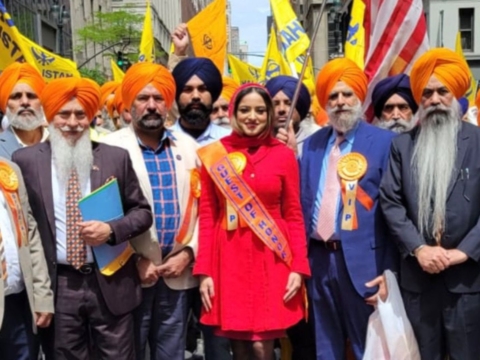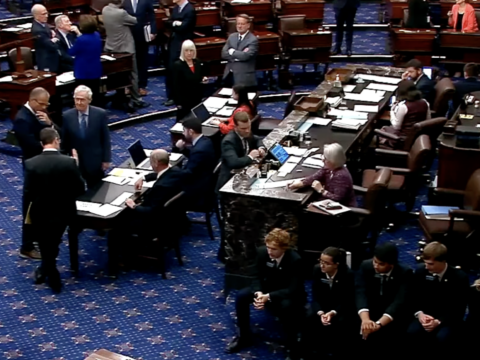SANTA CLARA, Ca. (Diya TV) — Nearly 250 guests around the globe joined together to listen to the latest entry in the Confederation of Indian Industry’s (CII) “India and the World” discussion series, aptly titled, “India and the Re-emerging Global Order: Thought Leadership on COVID-19 Geopolitical Implications. The panel featured notable speakers from business and political fields alike including TATA’s Chair for Strategic Affairs Dr. Ashley J. Tellis, Ambassador R. Nicholas Burns, and McLarty Associates President and Co Founder Nelson Cunningham; additional remarks were made by CII’s Director General Chandrajit Banerjee, and the discussion was moderated by CII’s past President Dr. Naushad Forbes.
The event kicked off with Dr. Forbes casting a light on the lack of international collaboration in response to the global threat that the COVID-19 virus poses to the world. Forbes pushed further by highlighting that countries have a tendency to value domestic solutions and supply chains in order to secure national security despite the benefits that global trade relations, efforts, and organizations can provide.
While Dr. Tellis found herself in agreement with Forbes’ statement in regards to a short term solution, she also put forth the belief that while countries may initially shirk away from the efficiency and comparative benefits of international interdependent supply chains, that the disadvantages of resiliency are vastly unsustainable in the post COVID world and would consequentially result in moving away from such practices.
Cunningham posits that the pandemic has merely exacerbated changes in pre existing conditions, such as the strengthening of borders, rise of nationalism, and governments becoming increasingly insular.
Ambassador Burns put forth his voice to insist upon that that the need for international collaboration is has reached an all time high, as its’ propogation is necessary for the development and distribution for a vaccine as well as the recovery of the global economy at large.
The panelists ultimately came to the conclusion that trade within the upcoming years will continue to become increasingly difficult, albeit nations like India will hold advantages over their neighbors and global competitors that benefit from its long term recovery.
India has become an enthusiastic focal point for companies seeking a reliable partner for global businesses, particularly those seeking to distance themselves from China’s response to the pandemic. Dr. Tellis echoed her earlier sentiment by stating that while globalism will face a short term decline, India will play a vital role in grappling with the rise of regional trade networks that will begin to develop. The panelists concurred that India’s position in the resurgence of a global trade economy has earned the country numerous allies in the United States, but that the investments will take time to nurture, thus necessitating that India must perpetuate engagements with the US in the government, corporate, and civil sectors in order to cement trade and strategic ties.




